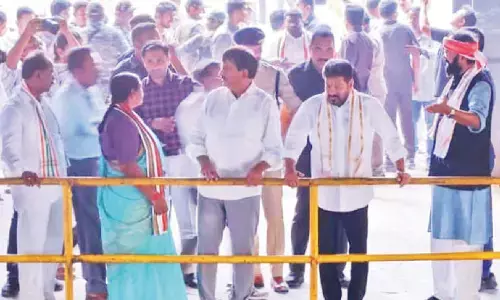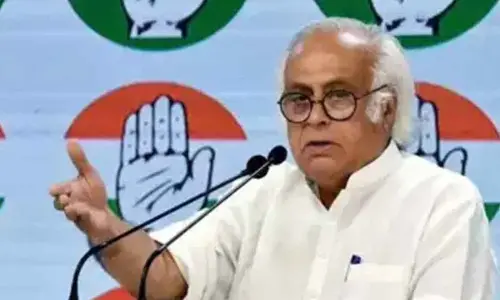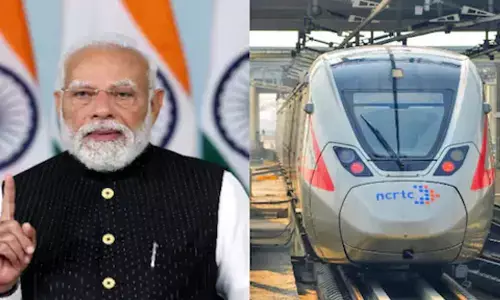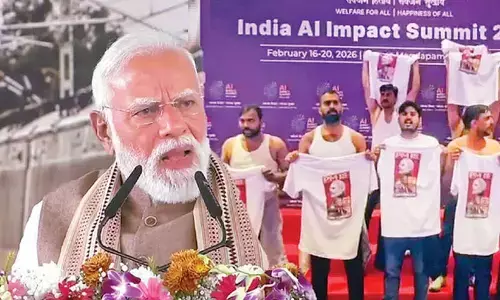Uniform Civil Code: A double-edged weapon
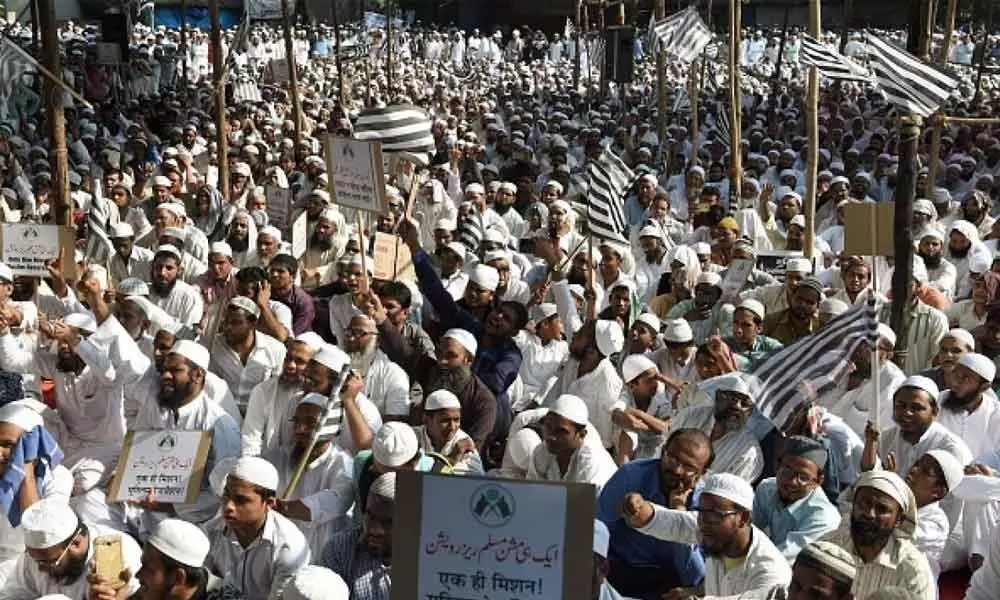
The BJP has been slowly but steadily resolving issues which were kept pending for decades by various parties apparently as part of its strategy of vote bank politics.
The BJP has been slowly but steadily resolving issues which were kept pending for decades by various parties apparently as part of its strategy of vote bank politics.
The BJP has successfully delivered its decade-old promise of scrapping Article 370 and has also found a solution to the Ram Janmabhoomi-Babri Masjid tussle which has been accepted by all the stakeholders.
The big question now is whether the saffron party will make efforts to touch another controversial issue, the uniform civil code.
Prime Minister Narendra Modi has many a times claimed that the country has achieved 'one nation one tax' and 'one nation one constitution'. This gives rise to speculations that it would now be 'one nation, one civil code'.
In the past, such efforts have historically generated protests. The UCC aims at replacing individual personal customs and practices of marriage, divorce, adoption and successions with a common code.
While those who support the argument feel that it will end discrimination in religions, those who are opposed to it say that it will rob the nation of its religious diversity and would violate the fundamental right to practice religion as enshrined in Article 25 of the Constitution.
The debate is still on and if the government proposes to go ahead with its idea of bringing in UCC, it should convince the detractors first.
It would be worthy to mention Article 44 of the Directive Principles of the Constitution which said, "State shall endeavour to provide for its citizens a uniform civil code (UCC) throughout the territory of India."
The objective of this endeavour should be to address the discrimination against vulnerable groups and harmonise diverse cultural practices."
Analysts say that the Law Commission had pointed out in the past that a study of the debates in the Constituent Assembly indicates that there has been no consensus on the issue of uniform civil code.
Some felt that UCC and personal codes would coexist while others believed UCC would deny freedom of religion. As there was no unanimity or clarity on the subject, it was included in the Directive Principles of the State Policy rather that as a chapter in Fundamental Rights.
Legal experts say that the Supreme Court missed an opportunity to decide on the issue in 2017 when it outlawed triple talaq without addressing the core issue: whether personal law practices should prevail over the fundamental rights of life, dignity and non-discrimination.
Experts say the Constitution Bench's judgment was the product of an October 2015 decision of a two-judge Bench of the court to take suo motu cognisance of the discriminatory practices against Muslim women.
This Bench pointed out that it had been 30 years since the court, in the Shah Bano case, urged the government to frame a common code to "help in the cause of national integration."
Experts further pointed out that in the Shah Bano case, the court lamented that Article 44 remained a "dead letter." The Law Commission chose codification of personal laws over the UCC to end discrimination within religions.
Codification of various practices and customs would make them 'law' under Article 13 of the Constitution. Any 'law' that comes under Article 13 should be consistent with the fundamental rights, the Law Commission had reasoned.
This would protect the plurality of religions, too, and may be the way forward for the near future. In fact, the Law Commission has suggested in no uncertain terms that the UCC is "neither necessary nor desirable at this stage in the country." It said a unified nation does not necessarily need to have "uniformity."
Those who advocate the UCC say that religious laws or community customs are not always the most rational, just or equitable — this applies to 'Hindu' traditions too, which are probably as numerous as there are dialects in the country.
Hindus too are governed by community-¬specific laws, which are still in evolution. For instance, it was only in 2005 that Hindu women were granted the rights to family property, for instance — and the right to marital property in case of a divorce is still den¬ied to them.
The UCC, they feel, can put an end to all such discriminations.
Constitutional experts aver that there are many constraints. In one Section of the Constitution if something is mandated – it puts constraints elsewhere.
Take for example: Naga customs do not recognise divorce but Christian Nagas follow both custom and Christian specific laws. Such dichotomy needs to be addressed by the NDA government first lest it could open a Pandora's box.
The minute one talks about UCC, it is perceived as just about Muslims and lot of noise is made and politics creep into it in the name of ¬'secularism'. Political parties forget that UCC will have impact on every community which includes the Sikhs, the Parsis, various tribes etc.
The government first needs to come out with a blueprint explaining how a uniform family law can be made applicable to all Indians.
It will be no easy task. It could add another feather to the BJP cap if it succeeds and at the same time it could boomerang on them very badly.
Those who oppose it argue in the name of secularism say that UCC would affect the spirit of secularism. It was because lack of this clarity it was incorporated in the Directive Principles of the Constitution.
The government needs to clarify all these issues and debate them first. This is important because any civil code would affect everyone down to the last citizen. It is certainly a double edged weapon.








